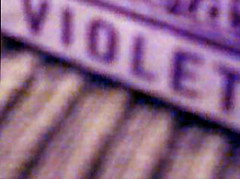The Wake. Lisa Kron. dir. Leigh Silverman. Kirk Douglas Theater. 4/15/10.
Lisa Kron's new play, The Wake might be a truly great play. I don't think it's quite there yet. I wasn't completely seduced. But I'm totally interested in a second date.
The Wake is a soaring attempt to map the political on the personal, to discuss the politics of the last ten years from a point of view that is both embraces and indicts American liberalism and exactly the people Kron expects to find in her theater audiences. I don't completely buy it, but there are some absolutely stunning, true, painful moments along the way.
The story focuses (too much, if you ask me) on Ellen, played by Heidi Schreck, who was both the center point and the weak point in the play (probably through no fault of the actor's, who handled a ton of complicated dialogue with aplomb, if not charm). I just spent way too much of the play hating how utterly solipsistic she was. I think her privileged self-centeredness is an important point, but that it needs to be revealed more slowly; her astounding lack of awareness of anyone around her should only be completely understood in Act II, and before then she needs to show some redeeming qualities rather than just an egomaniacal tendency to lecture. As an audience member who believed immediately that Ellen was intended to be a representative of the play's audience, I wanted at least some sense of the good to entice me into accepting Kron's more difficult assessments.
Where the play really sings is in the group scenes. The ensemble of this play is truly excellent, and when all the characters get talking, they all have such great depth and humanity and differentiation to their interactions that I don't know how anyone could help but fall in love with them. Carson Elrod as Ellen's partner, Danny, and Andrea Frankle as his lesbian sister, Kayla were absolutely delightful, real, wonderful characters and Dierdre O'Connell as Judy as an older, acerbic, out-of-place houseguest and worldly foreign aid worker brightened the play up considerably and counteracted Ellen delightfully. I would have loved them to be more clearly developed in relationship to the play's political allegory. Why can't they all be developed as equal representations of failures and blind spots in the American character?
Where the play falls apart for me is in the burden it places on Ellen and the parallels it makes between the personal and the political for her. She spends far too much time talking directly to the audience, explaining revelations that should be made in conversations between characters. If I were in charge, I would eliminate all of these monologues except maybe the very first and trim all of Ellen's text. She's supposed to be talky, but I think that can be communicated more clearly and efficiently than it is. Some of these rants are smart, but none of them are entirely necessary. The play spends way too much time telling us that Ellen is smart and complicated when far too often what we see of her is one-note and simplistic, though verbose. I can accept intellectually that that is the point, but I find it profoundly unpleasant to have to sit through it. I would take away some of that, but spend a little more time working up the relationships between the political current events timeline and the personal events in the play. I liked very much in the end how Ellen in conversation with Judy jumped back and forth between relationships and politics, and I would have liked to see more hints of that during the rest of the play. The politics were generally represented by news clips and projections, which were very good, but didn't always work as well as I wanted them to as representations of the personal relationships. Perhaps they needed to be juxtaposed more closely, but I didn't always see which parallels the play wanted me to make. This is especially true in discussing the projection of American politics in the long term, which was actually smart and yet didn't clearly map to the personal/political allegory of the characters. Basically, it felt like Ellen was too static of a character and didn't really grow or change even in what should have been powerful revelations about herself and her belief. That may be true about us as a country, but it's pretty difficult for telling a story.
While it isn't by any means a perfect play and I definitely feel that it needs some cuts, The Wake is an unqualified success in that I left the theater thinking and talking about the play, and the politics. It reflects beautifully, if pessimistically, on where we are now, although the answers about what to do about it are disturbingly absent. I'm excited to hear about how it will grow and change at Berkeley Rep and the Public Theater. I'm so glad I got to see it first, and I hope that CTG will offer more exciting new plays (especially those by women!) like this.
Zin Galactic cut
-
Zin Galactic cut
Sometimes there's something I like but I have to cut it because of how the
play functions better without it. I just cut this from Zin Gal...
19 hours ago

0 comments:
Post a Comment